Covid-19: Sammy Wilson hopes DUP will block vaccine passport checks
- Published
- comments
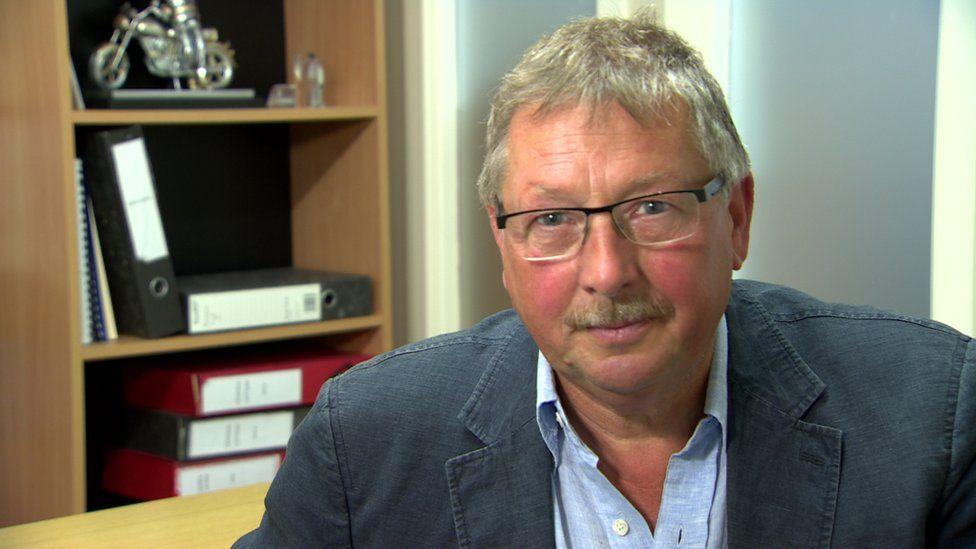
Democratic Unionist Party (DUP) MP Sammy Wilson has said he hopes his party will try to stop the introduction of mandatory Covid-19 vaccine certificates in Northern Ireland.
He described it as a "bad policy" and said it would be an infringement on people's freedoms.
The Stormont executive will discuss the proposal by Health Minister Robin Swann's at a meeting on Wednesday.
Three other ministers have already declared their support for the plan.
Any ministers opposing to the idea "need to set out very clearly what their alternative is", said Infrastructure Minister Nichola Mallon, the SDLP deputy leader.
Alliance Party leader and Justice Minister Naomi Long said the system should have been put in place when social distancing was scrapped in bars, cafes and restaurants and nightclubs reopened in Northern Ireland on 31 October.
Deputy First Minister Michelle O'Neill, the Sinn Féin vice-president, tweeted that she would support Mr Swann's proposal.
DUP leader Sir Jeffrey Donaldson said he had made a commitment to Mr Swann to "work with him to find solutions", but they "have to be solutions that genuinely ease the pressures that our hospitals are under".
Allow X content?
This article contains content provided by X. We ask for your permission before anything is loaded, as they may be using cookies and other technologies. You may want to read X’s cookie policy, external and privacy policy, external before accepting. To view this content choose ‘accept and continue’.
Northern Ireland's health department has updated its COVIDCert NI app, which was introduced to allow people travelling abroad to show proof of vaccination, to include a certificate for "domestic use".
But use of the domestic certificate is not mandatory - that will be up for discussion by the executive on Wednesday.
Mr Swann has said that ministers will consider which sectors may require people to show certificates to gain entry.
The DUP's Mr Wilson said ministers from his party would "make a proper assessment of the policy... and then make [their] decision".
He told BBC News NI: "If you're going to have a policy which will save lives then at least make sure that it's workable.

The Republic of Ireland has been using the EU's Digital Covid Certificate since July
"Make sure that it doesn't do other damage to the economy and to people's individual freedoms which can't be undone in the future.
"We have always said that any response to Covid should be a proportionate response and should take into consideration the impact that it has on people's lives and on businesses."
It was put to him that some hospitals in Northern Ireland were close to breaking point.
He responded: "There should have been much better planning to ensure that hospitals did have the capability - we are two years nearly into this (pandemic) now."
Mrs Long told BBC News NI: "I felt that the time to [introduce mandatory vaccine certificates] was at the point when we were making additional relaxations.
"Those who are vaccinated are less likely to become seriously ill, and if they're less likely to be seriously ill they're less likely to put pressure on the health service."
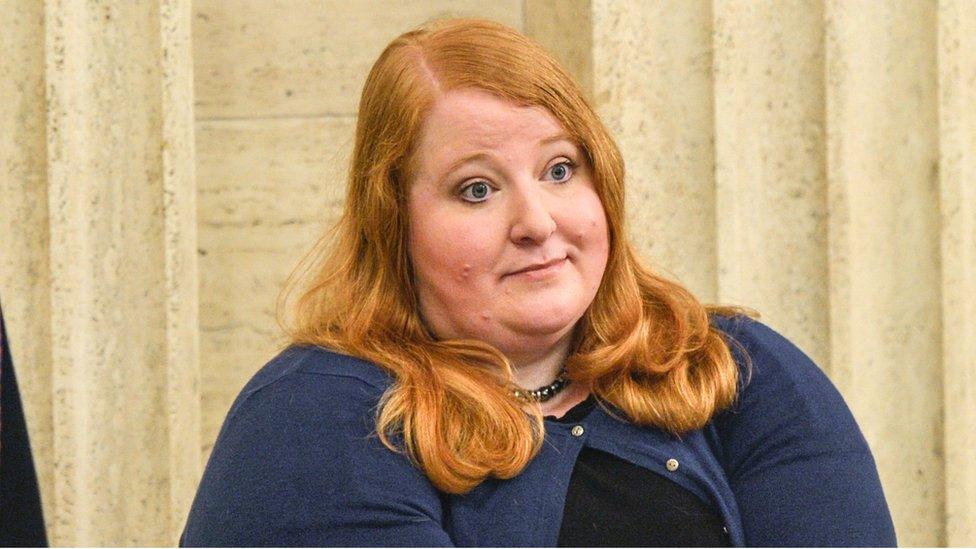
Naomi Long says a mandatory vaccine passport system should have been introduced last month
But she said it was important to maintain other measures for dealing with Covid-19.
"[Vaccine passports are] not going to be the one thing which sets us out and deals with the fact we have rising Covid levels in the community," she said.
"The thing that's most likely to do that is people taking personal responsibility."
Mrs Long said she did not support the introduction of Covid-19 passes "when it comes to access to public services".
"I think that would be discriminatory but I think when you're talking about areas of life which are optional it is reasonable, particularly where there is no social distancing possible," she added.


If Covid passports are to be introduced in Northern Ireland it will not be a magic solution - they are just another piece of the jigsaw of measures designed to offer an additional ring of protection.
The hard evidence is that vaccines work so more proof of individuals being vaccinated will help control an environment that's full of the virus.
Think about it - if you reduce the chance of infectious people entering high-risk settings such as bars and nightclubs you reduce the risk of transmission.
But it would be wrong to expect Covid certificates to solve all of our problems.
It worked in the Republic of Ireland to an extent but now that the effectiveness of the vaccine is waning and more people are indoors certs there aren't just as powerful.
Like social distancing, hand-washing, vaccines and boosters, Covid certificates are just another part of the armoury.
With infection figures rising, the Department of Health needs all the ammunition it can get its hands on as it continues to battle the virus.

Ms Mallon said the introduction of Covid-19 vaccine passports was "long overdue".
"It really is the right and responsible thing and I hope that all of the executive can examine the evidence and we can agree this and we can get moving on it extremely quickly," she told BBC News NI.
"No-one wants to be taking these decisions but we're in a public health emergency and so we have to take difficult unpopular decisions.
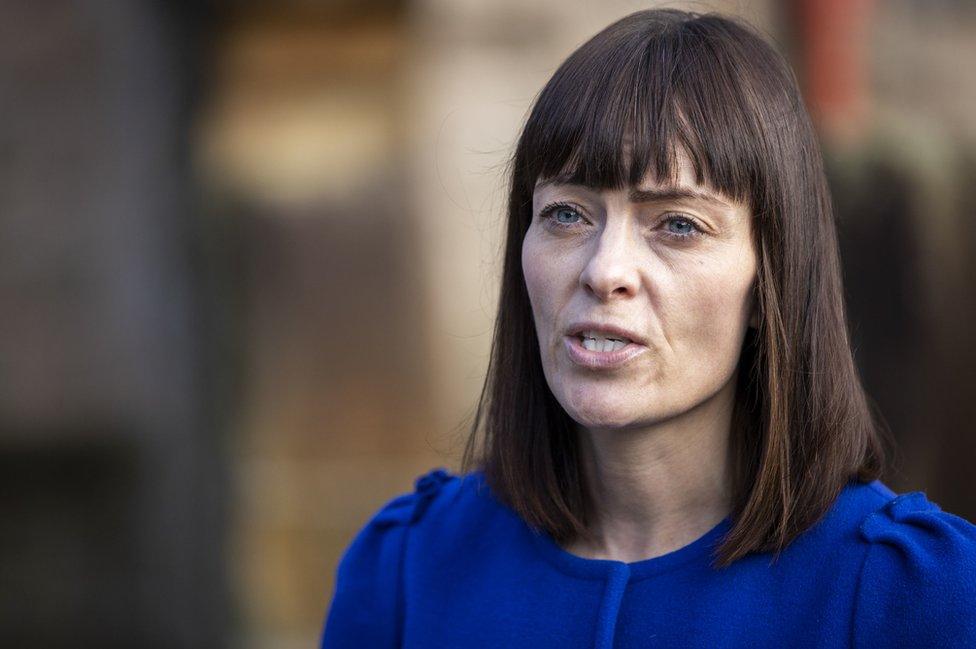
Nichola Mallon says a vaccine certificate system is the "right and responsible thing"
"We need to do a last push, if you like, to maximise vaccine uptake and we know when you look at other places that when you incentivise it more people come forward."
Since July, people in the Republic of Ireland have had to show proof of their jabs for indoor hospitality.
'Singled out'
The chief executive of Hospitality Ulster said the majority of businesses could not support a vaccine passport.
Colin Neill said that "once again" the industry was being singled out.
"Many are worried that this will be imposed on the sector, just because it might feel like this is the right thing to do," he said.
He said there were many unanswered questions about what a phased approach was, what premises would be included, unvaccinated staff and the effect on jobs.
"The executive has the power to impose Covid passports but it will be the hospitality sector who will be left to carry the financial and operational burden," he said.
"It would appear that little or no consideration has been given to the business owners and staff who will be left to enforce the scheme."
The Northern Ireland Hotels Federation, a trade body representing the sector, said Stormont must "outline exactly what" was required before such a policy came into effect.
"The real thing is the clarity," said its chief executive Janice Gault.
"The public need to know why this is being done, what is expected of them, just as businesses need to know what they are looking for and how it will be enforced."
- Published15 November 2021
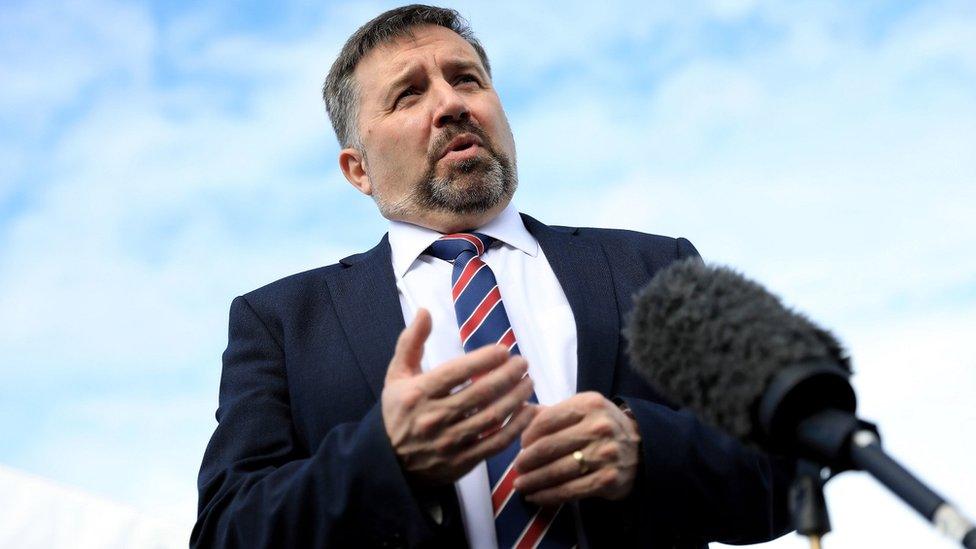
- Published26 September 2021
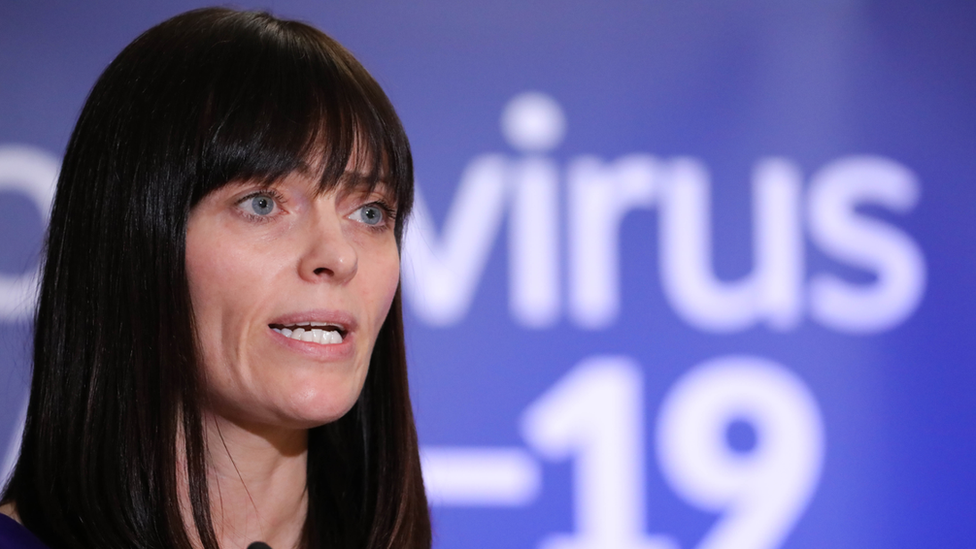
- Published1 November 2021
